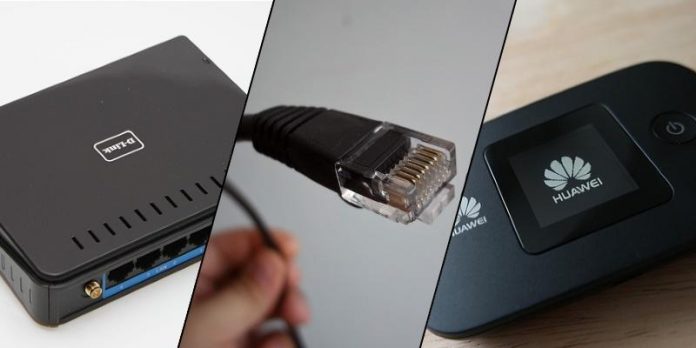Because it’s not as fast as Ethernet, most people don’t realize that the Internet can offer them just about the same level of performance and reliability as Ethernet. If you want to know the differences between Internet and Ethernet so you can make an informed decision about which one will be best for your business, check out this article. You may be surprised by what you learn! [link]
What is the difference between Internet and Ethernet?
Internet vs Ethernet are two very different things. The Internet is a series of networks that communicate with each other to get information, while an ethernet cable is a physical connection that connects two devices together. So if you want to connect one device to another, ethernet would be your best option. But if you’re just looking for a way to connect one computer to the internet, then ethernet would not be necessary. Instead, all you need is an internet connection through something like DSL or cable modem.
That said, even though you don’t technically need ethernet in order to use the internet, it’s still preferable because it offers much faster speeds than what you’ll find on WiFi or 3G/4G LTE. In other words, it’s best for bandwidth-heavy tasks such as watching videos or downloading large files from the web. What should I do?: If you’re planning on using internet vs ethernet connections for anything at all, there are a few different types to choose from. For example, cat5e (Category 5e) has 10 Mbps capability and is used primarily for connecting network components via horizontal cabling (such as computers).
Cat6a (Category 6a) has 100 Mbps capability and supports applications such as VoIP. As far as wireless connections go, many people think that wireless isn’t good enough when compared to wired connections. And while this may be true when you compare them side by side, wifi actually does work better in certain situations – namely places where there is no direct line of sight to the router or where the signal can bounce off walls instead of traveling directly into your house.
How do they work?
Ethernet is a fast, reliable networking technology that transfers data using copper or fiber optic cables. It’s best for when your network runs over long distances because it doesn’t lose speed over distance like WiFi does. It’s also great for connecting devices that are physically close to each other but far from the router (like a gaming console).
Internet is a general term used to describe any type of connection that transmits information through electromagnetic waves, like radio frequencies, microwaves, and light beams. Broadband internet.
Which uses coaxial cable or fiber optic cables to transmit data at high speeds over short distances, is popular in homes with slower connections like DSL. Fiber-optic cables allow broadband providers to offer services up to 10x faster than most standard broadband connections. The two types of connection are comparable and you’ll often find them working together in order to provide both fast and reliable connections throughout your home or office. In fact, some people use both forms of connection together for maximum coverage.
There’s no way for me as a consumer without technical expertise to know if I’m receiving an internet service via ethernet cable instead of Wi-Fi just by looking at my modem. My computer will show me whether I am connected via ethernet cable or Wi-Fi if I open the Network Connections window on my computer desktop by clicking Start > Control Panel > Network Connections > Local Area Connection.

Which one is better?
The answer to this question is complicated, but there are a few things to consider. First, what will you be using your internet connection for? If it’s just for surfing the web, then ethernet probably isn’t necessary. However, if you want to stream video or play games with other gamers over the internet, then ethernet might be a better option because it is faster than broadband internet. Second, how many devices do you have that require an internet connection? This will determine which type of connection is best for your home.
Lastly, what are your long-term plans for your home network infrastructure? If your internet goes out in one room but not in another room, ethernet would be a good option because it doesn’t rely on wifi access points like cable does. In addition, ethernet cables can be much longer than wifi range so if you live far away from your router, ethernet is the way to go. Wi-fi signals also can’t penetrate walls as well as ethernet cables, making them less useful if you need a lot of coverage.
So, based on what you plan to use the internet for, whether you want to connect more than one device at once, and your desired level of mobility while accessing the internet (ie: ethernet vs wireless), determining which type of connection is right for your needs could depend largely on preference.

